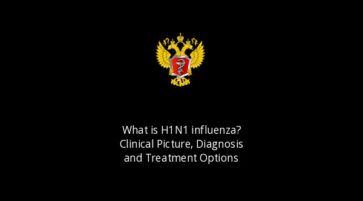
Aybintio (abaloparatide)
Aybintio is a prescription medicine used to treat osteoporosis in postmenopausal women at high risk…

Leprosy, also known as Hansen’s disease, is an ancient chronic infectious disease caused by the bacterium Mycobacterium leprae. It has been recorded throughout history, and was highly stigmatized in medieval Europe and the Middle East…. Read More »

Chagas disease, also known as American trypanosomiasis, is a parasitic infection caused by the protozoan parasite Trypanosoma cruzi. The natural reservoir of the parasite is mainly wild animals such as opossums, armadillos, and rodents, while the main mode of transmission to humans is through the bite of infected triatomine bugs, also known as kissing bugs. Chagas disease is endemic in parts of Central and South America, where poverty and poor living conditions contribute to its spread…. Read More »

West Nile fever is a viral infection caused by the West Nile virus, which is primarily transmitted through the bite of infected mosquitoes. The natural reservoir for the virus includes various bird species. The disease is prevalent in many countries, including the United States, and is associated with outbreaks in certain regions during the summer and fall seasons…. Read More »

What is Zika Virus Infection? Zika virus infection is caused by the Zika virus, which is primarily transmitted through the bite of an infected Aedes mosquito. The virus can also be transmitted through sexual contact, blood transfusion, and from mother to fetus during pregnancy. The natural reservoir for the virus is believed to be non-human…… Read More »

Swine flu, also known as H1N1 influenza, is a respiratory illness caused by the H1N1 virus. The virus is a type of influenza A virus and has a natural reservoir in pigs. Swine flu can spread between pigs and humans, and between humans. The first outbreak of swine flu in humans occurred in Mexico in 2009, and the virus has since spread to many countries around the world…. Read More »

Aybintio is a prescription medicine used to treat osteoporosis in postmenopausal women at high risk…

Paxlovid is a combination drug containing two antiviral agents, nirmatrelvir and ritonavir. It is used…

Xcopri is an anticonvulsant medication used to treat partial-onset seizures in adults. In the clinical…

Vaccination is a critical public health intervention that helps prevent the spread of infectious diseases…

Maintaining optimal health requires more than just a balanced diet; it demands a precise understanding…

The link between ALS and environmental exposures has been an area of active investigation, with researchers…

Quercetin is a flavonoid and phytochemical found in many fruits, vegetables, and herbs. It is a potent…

Quercetin-rich foods and supplementation offer potential health benefits for various population groups.…
Diet Type: low-fat
Daily Calories: 1500 cal
Carbs: 80 grams g carbs
Proteins: 240 grams g protein
Fats: 20 grams g fat
Diet Type: low-fat
Daily Calories: 1200 cal
Carbs: 60 grams g carbs
Proteins: 200 grams g protein
Fats: 20 grams g fat
Diet Type: low-carb
Daily Calories: 1200 cal
Carbs: 60 grams g carbs
Proteins: 120 grams g protein
Fats: 20 grams g fat
Diet Type: keto
Daily Calories: 1500 cal
Carbs: 100 grams g carbs
Proteins: 200 grams g protein
Fats: 20 grams g fat
Diet Type: paleo
Daily Calories: 1800 cal
Carbs: 100 grams g carbs
Proteins: 100 grams g protein
Fats: 35 grams g fat
Diet Type: dairy-free
Daily Calories: 1500 cal
Carbs: 80 grams g carbs
Proteins: 200 grams g protein
Fats: 20 grams g fat
Diet Type: gluten-free
Daily Calories: 1500 cal
Carbs: 66 grams g carbs
Proteins: 100 grams g protein
Fats: 20 grams g fat
Diet Type: pescatarian
Daily Calories: 1200 cal
Carbs: 60 grams g carbs
Proteins: 90 grams g protein
Fats: 25 grams g fat
Diet Type: vegetarian
Daily Calories: 1500 cal
Carbs: 50 grams g carbs
Proteins: 80 grams g protein
Fats: 30 grams g fat
Diet Type: vegan
Daily Calories: 220 cal
Carbs: 40 grams g carbs
Proteins: 20 grams g protein
Fats: 10 grams g fat
Increase your conversion rate!

